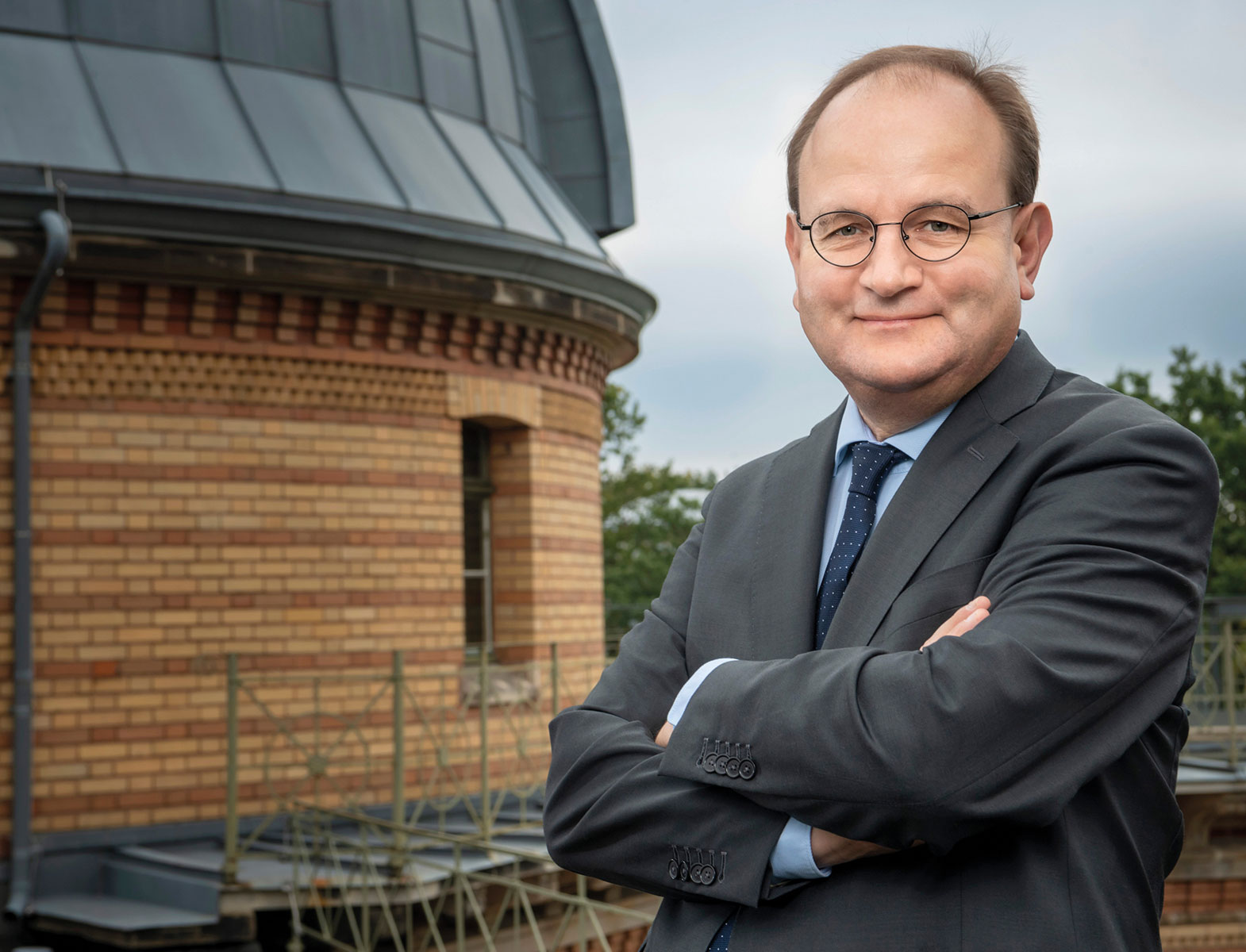Where do you see the main focus of the work of the Climate Change Center (CCC), especially in connection with the model region Berlin-Brandenburg and in contrast to other climate research institutions?
Our goal at CCC is to develop solutions that work. We have structured these in groups in a solutions triangle with Society, Technology and Nature as its three points. The fourth solutions group, Urban and Rural Spaces, is at the center of our triangle, right in the key zone where the other three fields converge. The Berlin-Brandenburg region is eminently suitable as a model region for our Center and offers ample opportunities for setting up living laboratories to carry out experiments that can supply very concrete answers to questions about climate-friendly mobility or the energy transition. What is unique about CCC, in my view, is this transdisciplinary solution-oriented approach. The promise of this approach is underscored by the academic excellence of the participating scientists and scholars.
What role and what tasks do you hope CCC will shoulder in public discourse? How will CCC interact with politics, business representatives and the population at large?
CCC can provide orientation knowledge on climate change and climate protection by presenting policymakers with options and information on their feasibility. Our main focus is on societal, technological and spatial questions. Our role is ultimately not to prescribe a single pathway, but to spell out what solutions are possible. Making decisions on the delivery of the options we describe is a matter for politics. As well as supplying orientation knowledge that seeks to provide answers to the question of what politicians should know, we also maintain dialog with political decision-makers. Here on the research side, we take the decision-making challenges faced by politics seriously. The questions confronting decision-makers and the question of what they want and need to know are among the issues we are addressing in transdisciplinary formats.
What are the greatest challenges, in your view, for climate change and climate protection in this decade, the 2020s?
For Germany and the EU, I see the implementation of the European Green Deal as central. It is vitally important that the EU climate protection measures provide investors with predictability. That is why having the right goals will not be enough on its own. We need clearly defined pathways and short-term entry points to ensure we actually reach these goals. From an economist’s perspective, the most efficient and socially equitable policy for achieving a safe climate future is a shrewdly designed, comprehensive CO2 pricing system. As well as the European Green Deal, we also need cooperation with players from outside Europe to get on track to reach the objectives of the Paris Agreement. Climate policy in this coming decade must work at every level—the local, national, European and global levels— to ensure that the necessary investments and the necessary transformation of society with far-reaching beneficial effects for the future are not derailed by lobbying in pursuit of short-term goals.
The interview was conducted in September 2020.
Bild: Ausserhofer / PIK


